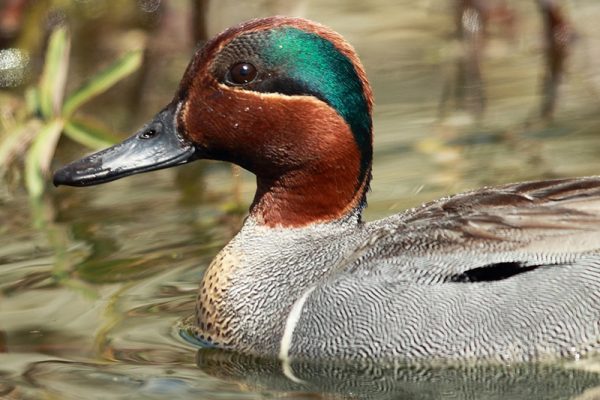Test Your Waterfowl ID Skills!
With their distinct, rusty colored heads and nearly identical plumages, male Redhead and Canvasback ducks can be challenging to tell apart, especially from a distance. The females, with their similarly muted brown plumages, are equally tricky. However, a closer look at the subtle details will reveal key differences in their features. Check out our keys to ID below, then test your skills with Bird Academy’s Snap ID tool. Before you know it, you’ll be identifying these ducks like an expert!
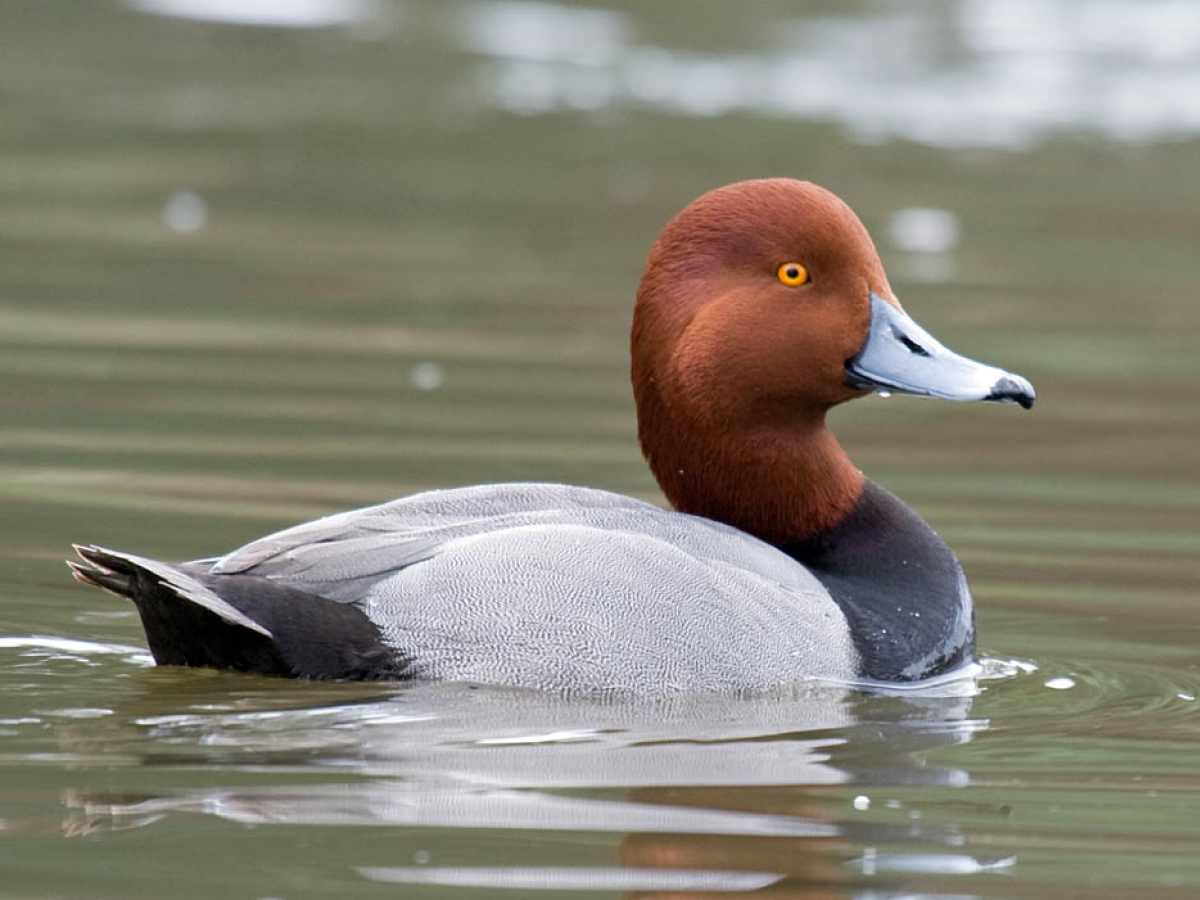
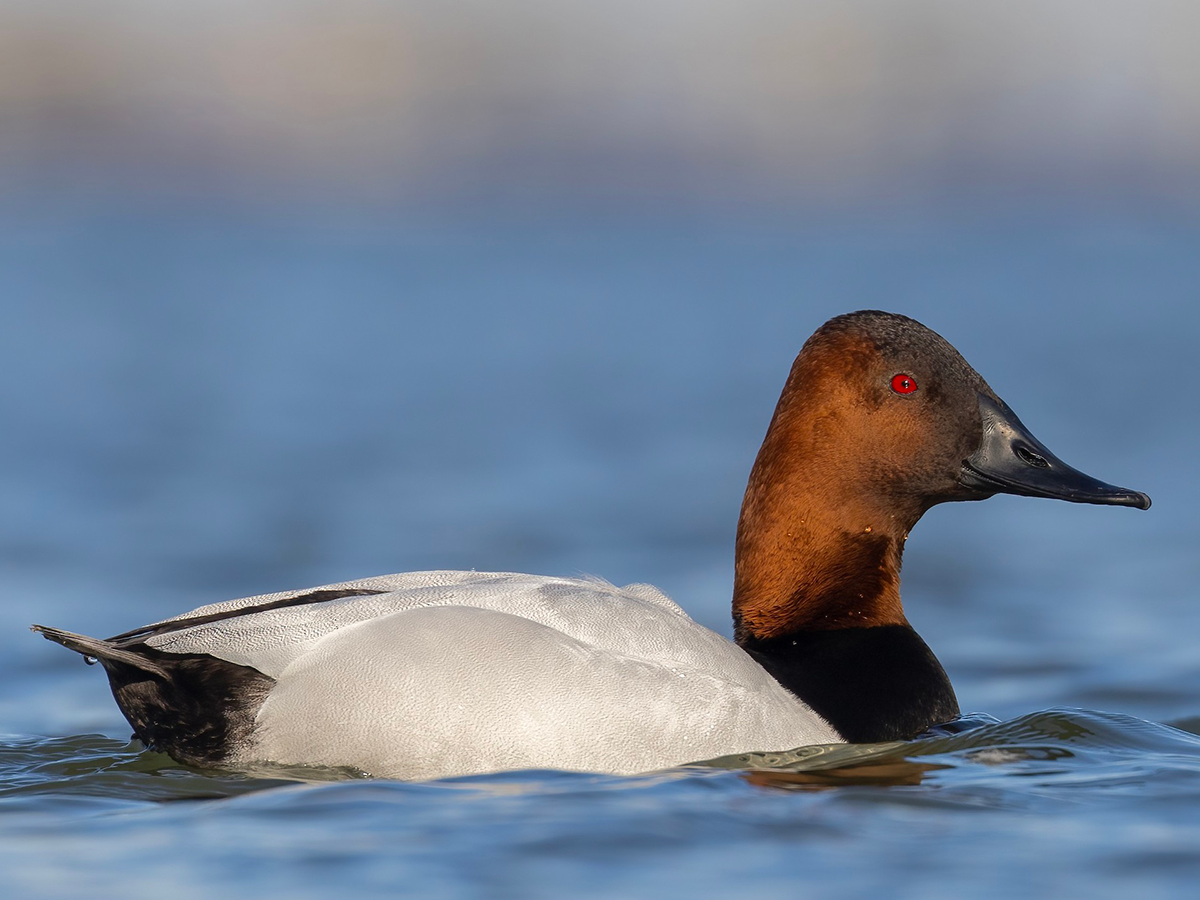
| ID Clue | Male Redhead | Male Canvasback |
|---|---|---|
| Size | Medium | Large |
| Head | Round, puffy red head and neck with a steep forehead slope and yellow eyes. | Brownish-red head and neck, peaked crown, gently sloped forehead, red eyes. |
| Bill | Shorter, slightly sloped blue-gray bill with black tip. | Longer, sloped triangular black bill. |
| Color | Dark, grayish back. | Light, whitish back. |
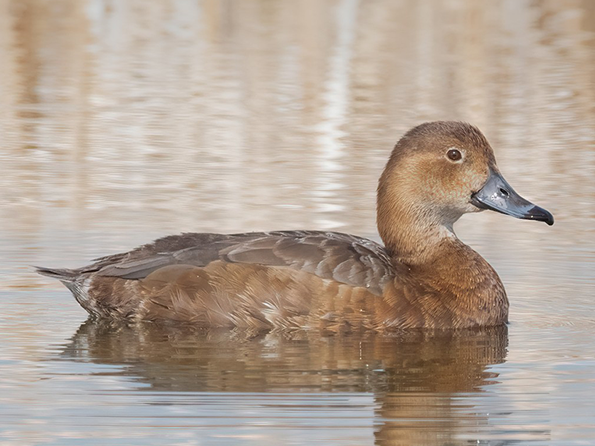
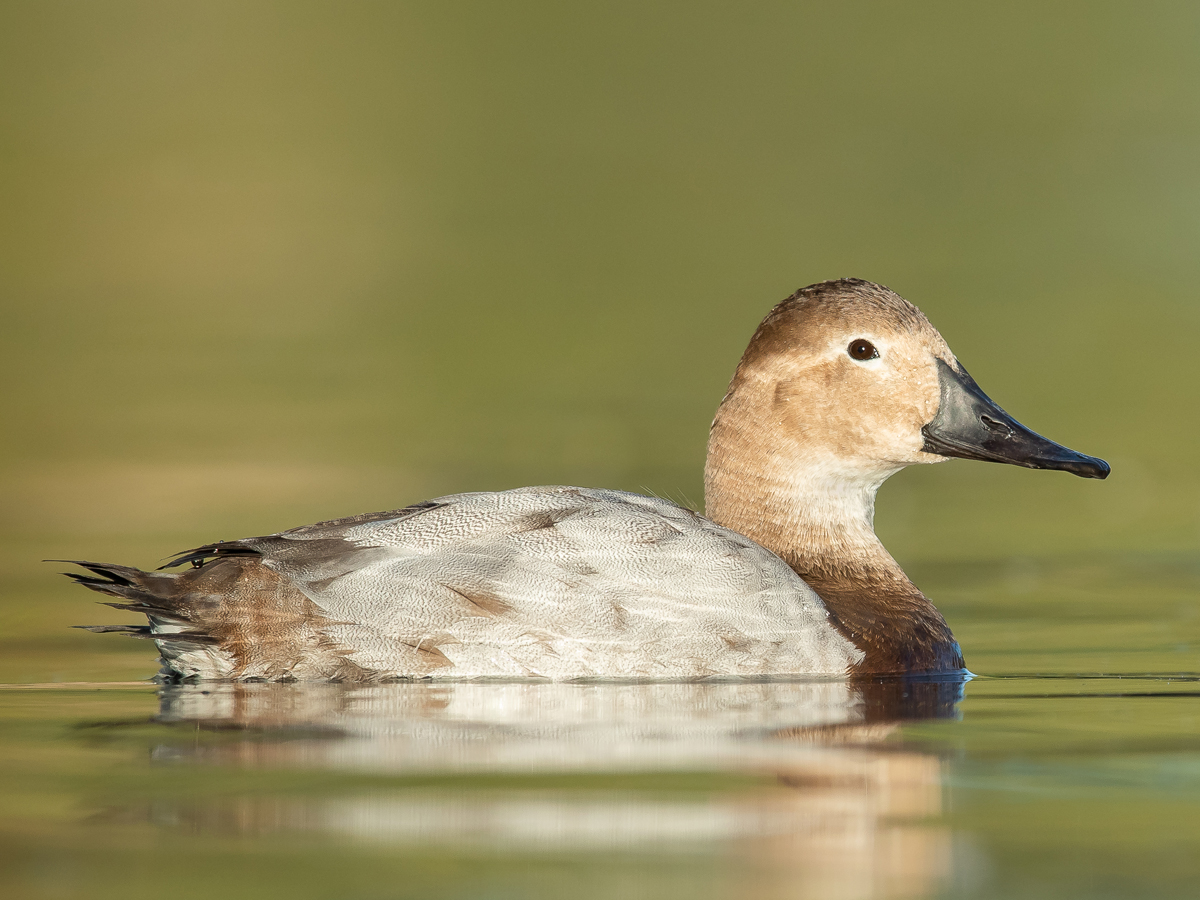
| ID Clue | Female Redhead | Female Canvasback |
|---|---|---|
| Size | Medium | Large |
| Head | Round, tan-brown head with a steep forehead slope. | Peaked, light brown head, white throat. |
| Bill | Shorter, slightly sloped blue-gray bill with black tip. | Longer, sloped triangular black bill. |
Lighting and perspective can sometimes make spotting these visual cues tricky. See if you can identify them in the quiz below. You can replay the quiz as many times as you like. Each time you hit “Play Again,” you’ll have new photo matchups to practice on. Just click “Start Snap ID Challenge” to get started!
Test Your Waterfowl ID Skills
Waterfowl, particularly ducks, can easily confuse birders due to their similar appearance and shared habitats. Color can vary among male, female, and immature plumages, making identification even trickier. Learning relatively consistent traits among males, females, and juveniles is helpful, especially if you focus on the head and bill shape, which tend to vary less than plumages.
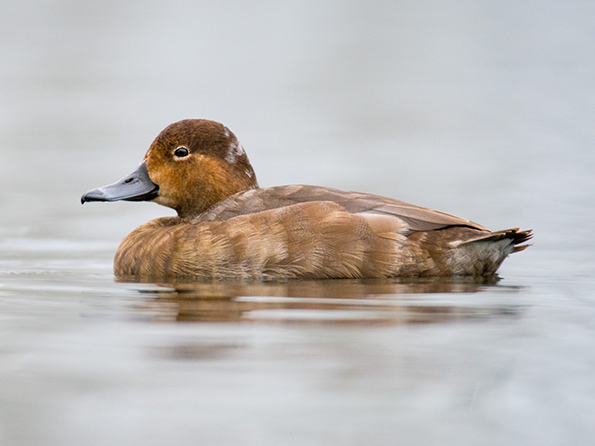
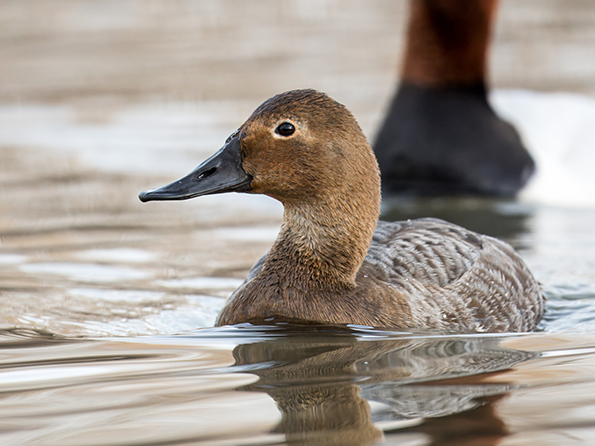
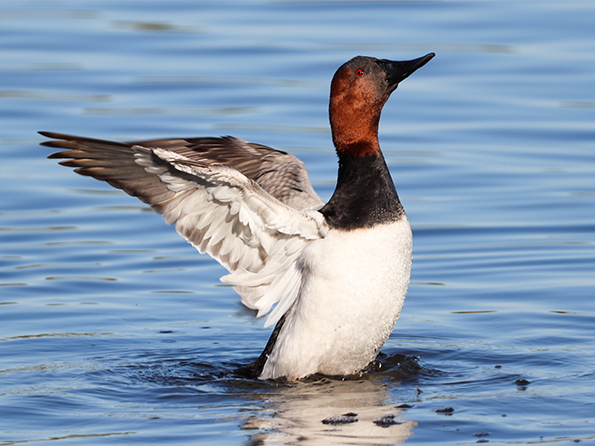
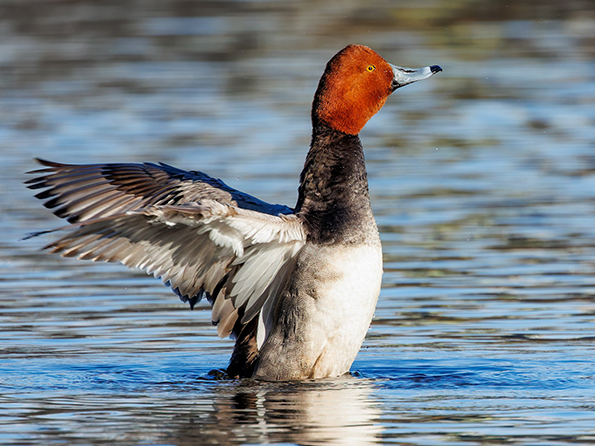
Ready to sharpen your waterfowl ID skills? Our self-paced, online course, Be a Better Birder: Duck and Waterfowl Identification, provides essential ID strategies, including the “Where is the White?” method for quick identification and tips for using behavior to distinguish dabblers from divers. Plus, you’ll get insider keys for identifying common waterfowl all across the U.S. and Canada. You’ll even learn how to distinguish non-duck species of waterfowl, like geese and loons! Dive into a free sample lesson for firsthand techniques, tips, and insights that make this course an invaluable resource for birders of at any level!
